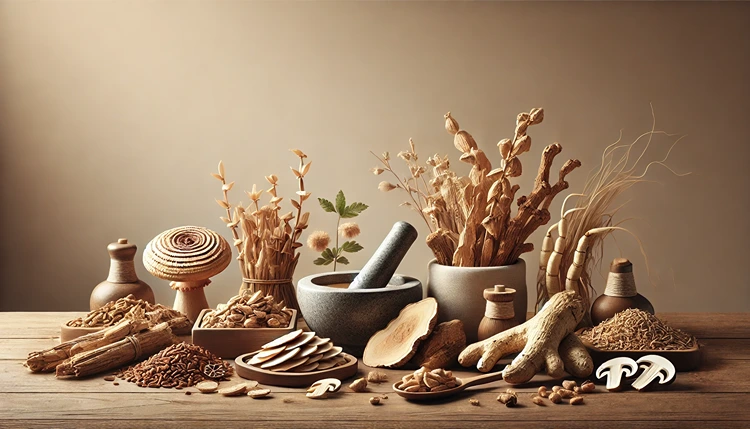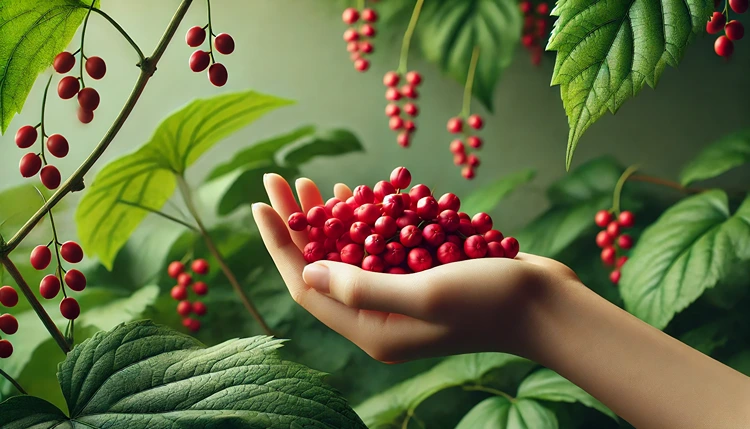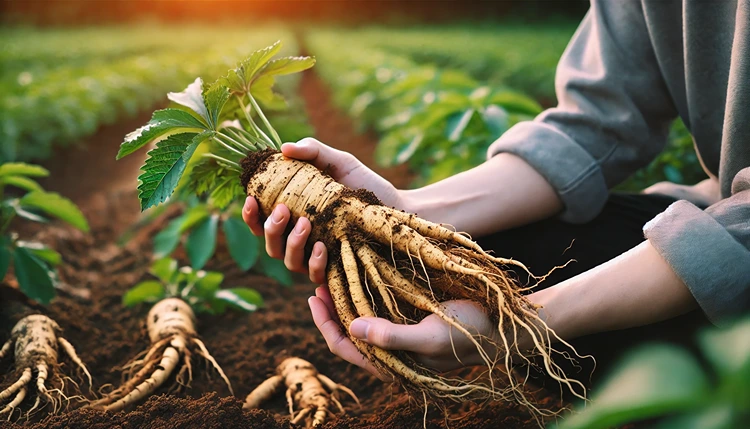
Ancient Chinese Herbs for Boosting Immune System Health
For centuries, Traditional Chinese Medicine (TCM) has been an integral part of health and wellness. Among its many practices, one key focus has always been strengthening the immune system. With more people today seeking natural ways to stay healthy, ancient Chinese herbs have gained attention for their powerful immune-boosting properties. These herbs work to support your body’s natural defense systems, helping you stay resilient in the face of illness.
What Makes Ancient Chinese Herbs Effective for Immune Support?
In Traditional Chinese Medicine, the immune system is seen as a complex interaction of various body systems working together to maintain balance, or “Qi.” When the body’s Qi is strong, the immune system can ward off illness. However, if Qi becomes weak, it leaves the body vulnerable to sickness.
Ancient Chinese herbs are believed to strengthen this vital force by targeting different parts of the immune system. Many of these herbs are classified as “adaptogens,” which means they help the body resist stress and improve overall immune function. They’ve been used for thousands of years and are known for their ability to build resilience against both physical and emotional stressors.
How Does Astragalus Strengthen Immune Function?
Astragalus is one of the most well-known Chinese herbs used to boost immunity. This herb has been a staple in Chinese medicine for centuries, with a long history of supporting the body’s defense mechanisms. It’s often called a “Qi tonic,” meaning it helps to strengthen and protect the body’s vital energy.
The immune-boosting properties of Astragalus come from its ability to promote the production of white blood cells, which are essential for fighting infections. It also has antioxidant effects, which help to protect cells from damage caused by free radicals. By enhancing both the innate and adaptive immune systems, Astragalus plays a crucial role in keeping the body healthy.
Helpful Hint:
Astragalus is often available in different forms like teas, tinctures, or capsules. For immune support, many prefer to consume it as a tea brewed with a few slices of dried root for a daily boost.
Why Use Reishi Mushroom for Immunity?
Reishi mushrooms have been highly regarded in Chinese medicine for thousands of years, particularly for their role in improving immune health. Known as the “mushroom of immortality,” Reishi is packed with beta-glucans, compounds that stimulate the immune system. This ancient Chinese herb also has powerful anti-inflammatory and antioxidant properties.
Reishi works by modulating the immune system, meaning it can help regulate an overactive immune response while simultaneously boosting an underperforming one. This makes Reishi particularly beneficial for those who suffer from autoimmune disorders or chronic inflammation.
Stats:
Studies have shown that Reishi mushrooms can enhance immune response by increasing the activity of natural killer cells, which are essential for fighting infections and cancers. [Source: National Center for Biotechnology Information]
How Can Schisandra Berry Improve Your Immune System?

Schisandra berries are another popular herb in TCM known for their immune-boosting properties. These berries are considered adaptogens, helping the body combat stress and fatigue while strengthening the immune system. In TCM, Schisandra is believed to support both the liver and lungs, two organs that play a critical role in detoxification and immunity.
Schisandra is also rich in antioxidants, which help fight oxidative stress and inflammation, two factors that can compromise immune health. Consuming Schisandra regularly can help bolster your defenses and improve overall vitality, making it a powerful ally in your natural health routine.
Can Ginseng Boost Immune Health?

Ginseng is perhaps one of the most famous Chinese herbs worldwide, known for its wide range of health benefits, including immune support. In TCM, ginseng is highly regarded for its ability to strengthen Qi and revitalize the body, making it particularly helpful during times of illness or fatigue.
Ginseng has been shown to stimulate the production of immune cells, such as macrophages, T-cells, and natural killer cells. These immune cells are critical in protecting the body from viral and bacterial infections. Additionally, ginseng helps reduce inflammation, which can further support immune function and help prevent chronic illnesses.
Helpful Hint:
When using ginseng for immune support, look for high-quality red or white ginseng. Both are beneficial, but red ginseng is often considered stronger and more potent.
How to Use Licorice Root for Immune Support
Licorice root is a lesser-known but highly effective herb for supporting the immune system. In TCM, licorice is considered a harmonizing herb, which means it helps balance the effects of other herbs and enhances overall health. Licorice is also known for its antiviral and anti-inflammatory properties.
Licorice root contains glycyrrhizin, a compound that has been shown to boost the immune system by increasing the production of interferon, a protein that protects against viral infections. Additionally, licorice root can soothe respiratory issues like coughs and sore throats, making it particularly useful during cold and flu season.
Be cautious when using licorice root long-term, as it can raise blood pressure in some individuals. If you have high blood pressure, it’s best to use deglycyrrhizinated licorice (DGL) or consult with a healthcare professional before use.
Helpful Hint:
Licorice root pairs well with other immune-boosting herbs like Astragalus and Reishi. Try brewing a tea blend with these herbs for a synergistic effect on your immune system.
Why Is Cordyceps Important for Immune Support?
Cordyceps is another powerful medicinal mushroom that has been used in Traditional Chinese Medicine for centuries. Known for its ability to enhance stamina and fight fatigue, Cordyceps is also highly regarded for its immune-boosting properties. This ancient Chinese herb works by modulating the immune system, helping it to better respond to pathogens while also reducing inflammation.
Cordyceps has been found to stimulate the production of immune cells like macrophages and natural killer cells, which are essential for protecting the body against infections. It is also believed to improve the function of the lungs and kidneys, which further supports overall immunity and energy levels.
Many people use Cordyceps in the form of extracts or powders, which can easily be added to smoothies, teas, or even soups. This versatile herb not only boosts immunity but also enhances physical performance, making it a great choice for athletes or those with chronic fatigue.
How Can Goji Berries Support Immune Function?
Goji berries, also known as “wolfberries,” have been used in Chinese medicine for thousands of years to improve longevity and immune function. These bright red berries are rich in antioxidants, particularly vitamin C and beta-carotene, which help protect the immune system from oxidative stress. Goji berries also contain polysaccharides, which are known to enhance the body’s ability to fight off infections.
Regular consumption of Goji berries has been linked to improved immune responses, increased white blood cell production, and reduced inflammation. In addition to their immune-boosting benefits, Goji berries are believed to support eye health and improve energy levels.
You can easily incorporate Goji berries into your diet by adding them to oatmeal, smoothies, or trail mix. Their sweet, slightly tart flavor makes them a delicious and nutritious addition to any immune-boosting routine.
How Does Chinese Skullcap Enhance Immune Health?
Chinese Skullcap, also known as Scutellaria baicalensis, is a potent herb used in TCM for its anti-inflammatory and immune-supporting properties. This herb is particularly effective at reducing inflammation, which is a major factor in weakened immunity. Chinese Skullcap is rich in flavonoids, including baicalin and baicalein, which have been shown to have antiviral and antibacterial effects.
In Traditional Chinese Medicine, Chinese Skullcap is often used to treat respiratory infections, such as colds, bronchitis, and sinusitis. Its ability to calm inflammation and fight infections makes it a powerful herb for supporting the immune system, especially during flu season or when facing chronic respiratory issues.
How to Combine Chinese Herbs for Maximum Immune Benefits
One of the key principles of Traditional Chinese Medicine is the combination of herbs to create balanced, synergistic effects. When herbs are used together, they can complement each other’s strengths and create a more comprehensive approach to immune health. For example, Astragalus, Reishi, and Licorice root work well together, as they each support different aspects of the immune system, from enhancing white blood cell production to calming inflammation.
Creating herbal blends is a great way to maximize the immune-boosting potential of these ancient Chinese remedies. Many TCM practitioners recommend combining adaptogens like Ginseng and Schisandra with immune tonics like Astragalus and Reishi. This combination helps the body adapt to stress, maintain energy levels, and strengthen overall immunity.
Helpful Hint:
For a simple immune-boosting tea, combine a few slices of Astragalus root, a spoonful of dried Goji berries, and a teaspoon of Reishi mushroom powder. Let it simmer for 20 minutes, strain, and enjoy a cup of immune-boosting goodness.
Can Ancient Chinese Herbs Be Used for Long-Term Immune Support?
Many of the herbs discussed, such as Astragalus, Reishi, and Ginseng, can be used as part of a long-term immune support plan. These herbs are known as “tonics,” which means they are safe for regular, daily use to build resilience and prevent illness over time. However, it’s important to rotate herbs or take breaks occasionally to avoid over-reliance on any single herb.
If you’re new to using Chinese herbs, it’s a good idea to consult with a TCM practitioner or herbalist to determine the best herbs and dosages for your specific needs. They can help you create an individualized plan that not only supports your immune health but also addresses any underlying imbalances in the body.
Top Chinese Herbs and Their Immune Benefits
| Herb | Primary Benefit | Best Form of Use |
|---|---|---|
| Astragalus | Enhances white blood cell production | Tea or tincture |
| Reishi Mushroom | Modulates immune response and reduces inflammation | Powder or capsules |
| Schisandra Berry | Fights fatigue and strengthens immunity | Berry or tincture |
| Ginseng | Boosts energy and supports immune health | Capsule or tea |
| Licorice Root | Soothes respiratory issues and enhances antiviral response | Tea or powder |
| Cordyceps | Improves stamina and immune function | Powder or extract |
What Are the Safety Considerations for Using Chinese Herbs?
While many ancient Chinese herbs are considered safe when used correctly, it’s always important to be aware of potential interactions with medications or underlying health conditions. For example, licorice root can raise blood pressure when used in large amounts or over long periods, so it should be used with caution by those with hypertension.
Similarly, ginseng may not be suitable for people with certain conditions, such as diabetes, as it can affect blood sugar levels. Always consult with a healthcare professional before adding new herbs to your regimen, especially if you’re pregnant, breastfeeding, or taking medication for chronic conditions.
Are Chinese Herbs Effective Against Modern Health Threats?
Many of the herbs used in Traditional Chinese Medicine have been the subject of modern scientific studies, which have confirmed their immune-boosting properties. For example, studies on Reishi mushrooms and Astragalus have demonstrated their ability to enhance immune responses and protect against infections. While ancient herbs may not be a substitute for modern medicine, they can offer a complementary approach to maintaining strong immune health in today’s world.
Stats:
A study published in the Journal of Ethnopharmacology found that Astragalus can significantly improve immune function by increasing the activity of white blood cells, enhancing the body’s ability to fight off viruses and bacteria. [Source: Journal of Ethnopharmacology]
FAQs
Wrapping Up
Ancient Chinese herbs have been trusted for centuries to support immune system health. By strengthening the body’s vital energy, or Qi, these herbs help promote resilience against illness and stress. Key herbs like Astragalus, Reishi, and Ginseng have shown powerful immune-boosting effects, making them valuable additions to any natural health routine.
From improving white blood cell production to modulating immune responses, Chinese herbs offer a holistic approach to maintaining wellness. Whether used alone or in combination, these herbs can support long-term health and prevent illness. By incorporating these ancient remedies into your lifestyle, you can give your immune system the strength it needs to thrive in today’s demanding world.
As you explore the world of Traditional Chinese Medicine, remember to consult with a healthcare provider to ensure you’re choosing the right herbs for your individual needs. With the right guidance, ancient Chinese herbs can become a powerful tool in your holistic health toolkit, helping you to maintain optimal immune function for years to come.
